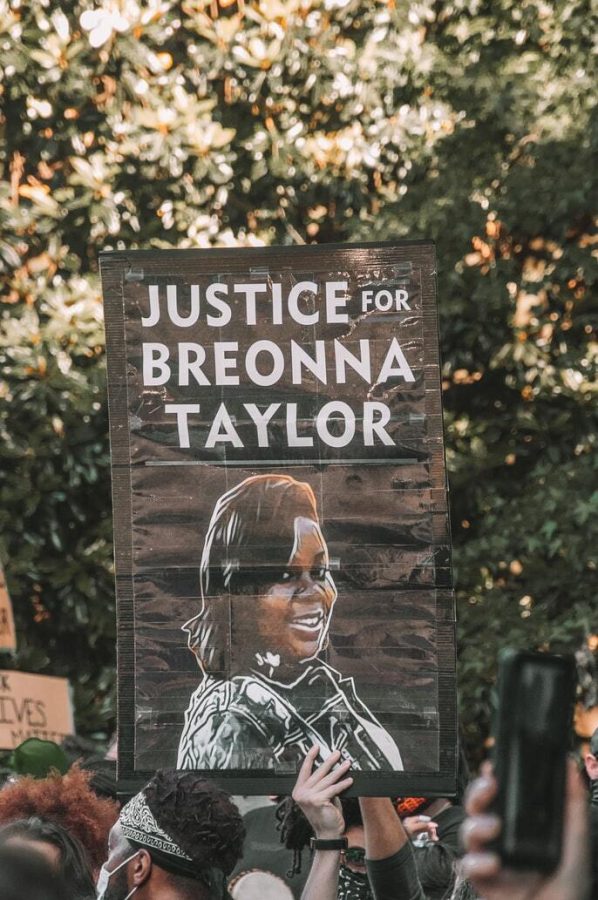Following Louisville Metro Police Department’s botched raid, Myles Cosgrove, a Louisville Metro Police Officer, shot and killed 26-year-old Breonna Taylor in March of 2020.
According to reporter Johnathan Franklin, “Cosgrove and other officers were carrying out a search warrant on the night of March 13, 2020, waking Taylor and her boyfriend, Kenneth Walker. Walker fired one bullet at the officers from a gun that he owned legally. Walker later said he thought the officers were intruders. The officers returned 32 shots, with Cosgrove firing half of those. Two of Cosgrove’s rounds struck Taylor. An FBI ballistics report said Cosgrove’s bullets killed her.”
Having fired inexcusably into the window of Taylor’s bedroom, Cosgrove had little to no knowledge of what or who he was firing at. Additionally, Cosgrove failed to power on his body camera prior to the raid.
Going against Louisville Metro Police Department (LMPD) policy, Cosgrove failed to properly identify a threat and went against the department’s use-of-force policy.
Cosgrove and his legal team argued for his position reinstatement, while several judges remained unfazed by his position on the case.
Regardless of the severity of action, Cosgrove disobeyed the fine print laid out in LMPD law and exemplified a major lack of morale while in pursuit.
More importantly, implicit bias in the United States criminal justice system will without a doubt affect the outcome of Cosgrove’s reinstatement process.
Bailey Maryfield, M.S, research associate at research institution JRSA, established the common patterns of implicit bias within the criminal justice system, specifically within the police force. “Implicit bias is in fact being acknowledged in recent national police reform efforts. For example, in its 2015 final report, the Task Force on 21st Century Policing noted that decades of research and practice support the premise that people are more likely to obey the law when they believe that the authority of those who are enforcing it is legitimate – and that the public confers legitimacy only on those they believe are acting in procedurally just ways.”
Provided that Cosgrove’s appeal for his position helps regain his privileges with the Louisville police department, the legitimacy of the American criminal justice system will be heavily questioned.
At the end of every unlawful action comes consequence. Cosgrove and his legal team have fought for his position, yet they continuously hear the same result.
PV senior Deven Reeder, shared insight into the American criminal justice system and its correlation to Cosgrove’s reinstatement.
“It is always difficult to see light at the end of the tunnel when it comes to unjustified police shootings. Unknowingly firing into the window of Taylor’s bedroom was unlawful and Myles Cosgrove deserves to be fired for his misdoings during the raid. Supporting our police is one thing, but allowing an officer to have his job back after committing murder is a different story,” Reeder claimed.
Having made his case, the likelihood of Cosgrove’s reinstatement is slim. The bodycam inactivation in itself is not a fireable offense, but failing to identify a clear threat before emptying two full rounds of ammunition into an apartment and murdering an innocent woman is.









